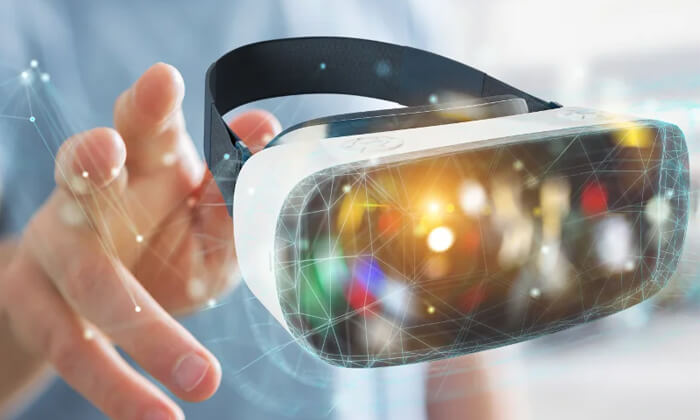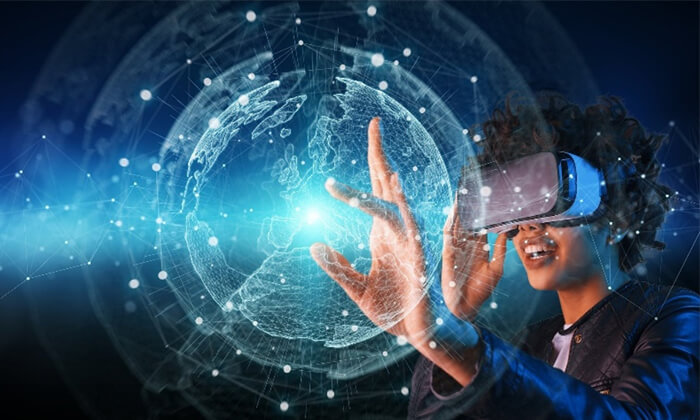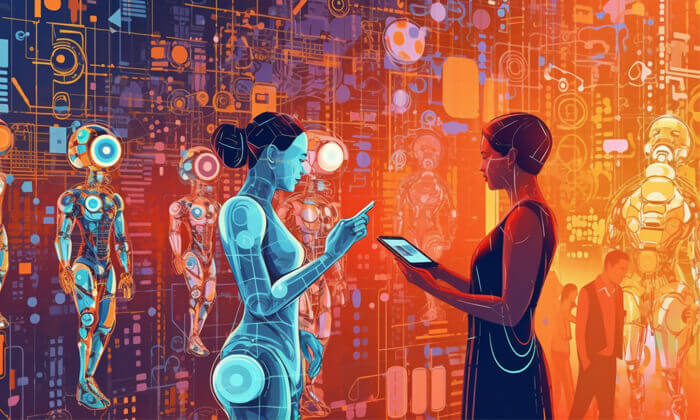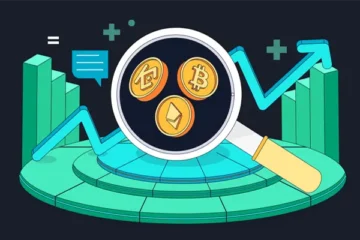Impact of Virtual Reality on Our Real Lives
Anúncios
Virtual reality technology heralds a new epoch in human-computer interaction by crafting immersive digital realms that closely simulate reality or conjure imaginative landscapes. This tech goes beyond mere visual immersion, engaging multiple senses and enabling users to explore and interact with a three-dimensional universe. As virtual reality systems advance and become more accessible, they revolutionize myriad sectors, spanning from entertainment and gaming to education, healthcare, and real estate, introducing innovative approaches to conventional practices.
Interactions within virtual environments have demonstrated the potential to influence user behavior, blurring the distinctions between digital and physical realities. Research indicates that experiences in virtual reality can alter how individuals perceive and interact with their surroundings, impacting their social and emotional well-being. As people increasingly immerse themselves in virtual landscapes, the boundaries between digital and physical realms fade, amplifying the significance of virtual experiences on real-world decisions and behaviors.
Anúncios
Furthermore, virtual reality has profound implications for communication, providing a transformative medium for sharing and experiencing events. Analogous to the internet’s transformative impact on global communication systems, virtual reality enables active and immersive engagement in shared experiences. This groundbreaking mode of communication has the potential to reshape social dynamics, fostering greater empathy and understanding among individuals as they engage in immersive virtual interactions.
Technological Evolution and Adoption of Virtual Reality
The rise of reality (VR) technology has seen a growth moving beyond its original focus, on gaming to impact various industries like education, training and healthcare. This progression is largely attributed to improvements in computing power and graphics processing enabling the development of sophisticated VR settings.
Anúncios

Furthermore the accessibility of VR has played a role in its acceptance. Once limited to niche markets due to expenses and technical complexities VR is now more attainable for the public thanks to mobile based augmented reality (AR) and mixed reality (XR) applications. These apps seamlessly blend elements into real world surroundings expanding the range and variety of VR experiences, to a wider audience.
Key Drivers of VR Adoption:
- Accessibility: Development for mobile devices has made virtual experiences more common.
- Diverse Applications: Beyond gaming, VR is used in simulations, healthcare, and more.
- Technological Advances: Improvements in VR hardware and software enhance user experience.
The expansion of VR applications reflects its potential. Education systems are using VR for immersive learning experiences. In healthcare, VR assists in complex surgical training. Meanwhile, companies use VR for remote collaboration, dramatically changing workplace dynamics.
With the ongoing digital revolution, entities like the World Economic Forum aim to expand digital access, indicating the potential role VR might play in connecting people to essential services by 2025. The interest in VR indicates an understanding of its value across different application domains as it becomes a more integrated part of daily life.
Psychological Effects of Virtual Reality
Virtual reality (VR) has an impact, on psychology by changing how we perceive things and triggering strong emotional reactions. When users immerse themselves in VR environments they can be transported to worlds. Experience real life situations virtually eliciting emotions similar, to those felt in actual settings. These emotions can range from wonder and enthusiasm to fear and unease depending on the content and context of the VR experience.

Furthermore VR has the potential to influence behavior by providing simulations where individuals engage with environments that mirror real world scenarios. The consequences experienced in these simulations have the power to shape peoples behaviors and decision making processes potentially altering their attitudes, beliefs and actions in reality.
Perception and Cognition
Research suggests that virtual reality (VR) notably influences individuals’ cognitive processes, impacting how they perceive and analyze information. Within virtual environments, users exhibit heightened spatial memory retention and enhanced problem-solving capabilities. This improvement is attributed to VR’s immersive qualities, which closely replicate real-world experiences, engaging various cognitive faculties simultaneously.
Emotional Impact
The emotional impact of virtual reality (VR) experiences can be profound and enduring. VR environments have been utilized in therapy to evoke and regulate emotional states effectively. They serve a crucial role in psychological interventions, assisting in the management of conditions like post-traumatic stress disorder (PTSD) and phobias by exposing individuals to controlled stimuli that elicit specific emotional reactions, facilitating their processing within a safe and virtual environment.
Behavioral Changes
VR’s influence extends to behavioral aspects; with consistent use, it can alter real-world behaviors. For example, practicing tasks within VR can enhance performance in the physical world. Additionally, social behaviors can be influenced by the choices of virtual avatars and environments, as interactions in virtual spaces can affect collaborative efforts and interpersonal skills.
Social Dynamics and Virtual Interactions
Virtual Reality (VR) technology revolutionizes social interactions by delivering immersive experiences that surpass physical limitations. Users engage in virtual realms, interact with others, and explore novel environments in unprecedented manners. This dynamic technology not only fosters connections but also enriches comprehension and empathy by enabling individuals to encounter diverse viewpoints firsthand.

Moreover, VR facilitates cooperative work environments, enabling teams to collaborate remotely in virtual arenas. Whether generating ideas, conducting training sessions, or hosting virtual gatherings, VR provides a dynamic platform for communication and teamwork. By transcending geographical barriers and fostering shared virtual experiences, VR empowers teams to collaborate more efficiently and creatively, thus stimulating innovation and productivity.
Online communities about VR
Within the realm of VR environments, online communities form based on shared interests, activities, or goals. These communities are characterized by:
- Spatial Presence: Users experience a sense of physical presence with others, fostering a greater sense of community.
- Collaboration and Engagement: Group activities in VR promote collaborative engagement, indicative of traditional community building but in a digital landscape.
Empathy and Understanding
The immersive nature of VR has profound implications for developing empathy and understanding among individuals. Key aspects include:
- Perspective-taking: VR experiences allow users to embody perspectives different from their own, potentially reducing biases and promoting social understanding.
- Emotional Impact: The intense emotional engagement provided by VR experiences can lead to deeper emotional connections and empathy towards others’ experiences.
Practical Applications and Future Prospects
Virtual Reality (VR) technology has cemented its role in various sectors, enhancing the way tasks are performed and experiences are delivered. This section delves into the specific domains of education, healthcare, and entertainment where VR’s influence is particularly transformative.
Education and Training
In education and training, VR assists in creating immersive learning environments that improve retention and engagement. Students can explore historical sites, simulate scientific experiments, or practice hazardous tasks without real-world risks. For instance, medical students use VR to practice surgeries, allowing them to hone their skills before operating on real patients.
Healthcare Benefits
Within healthcare, VR shows promise in both treatment and rehabilitation. Therapists use it for exposure therapy to treat phobias or PTSD, guiding patients through controlled simulations. Furthermore, VR facilitates motor skill rehabilitation after strokes by immersing patients in environments that encourage specific movements, which contributes to the restoration of those abilities.
Entertainment Industry
In the entertainment industry, VR revolutionizes the user experience by offering a level of immersion that traditional media can’t match. From virtual concerts to interactive gaming, users can enjoy a variety of content more personally and vividly. Advanced VR headsets provide highly detailed visual and auditory experiences that make users feel as though they are truly part of another world.





